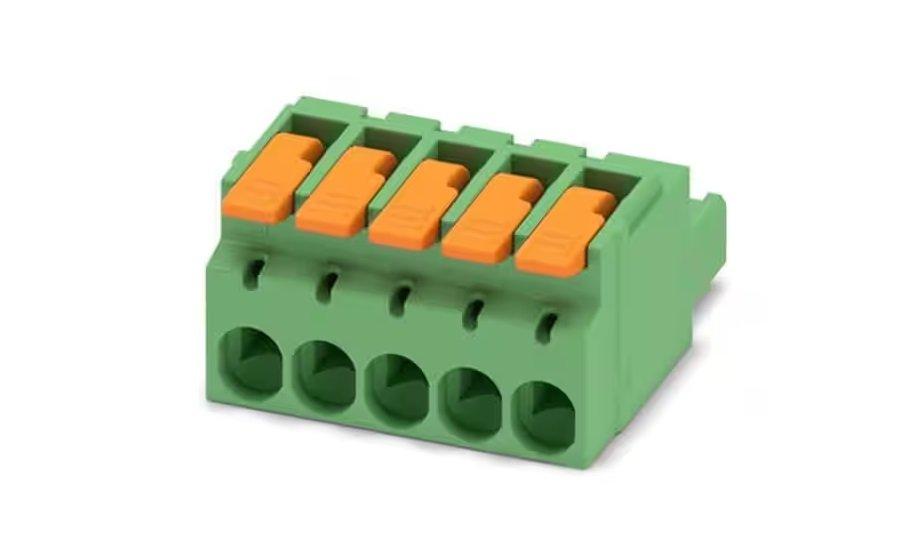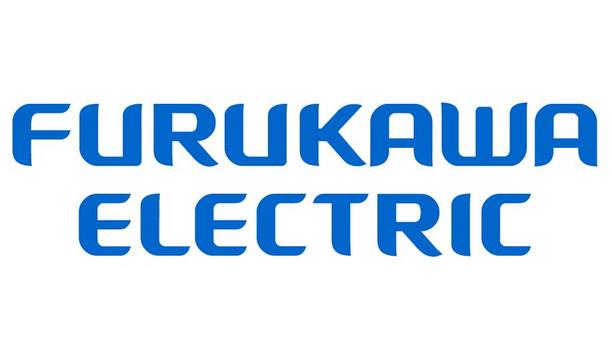PCB connectors are modular, insulated devices that facilitate electrical connectivity to circuit boards. As the demand for compact and efficient electronic devices increases, so does the need for reliable, easy-to-use connectors.
Phoenix Contact, an industrial automation, interconnection, and interface solutions manufacturer, has introduced its LPC 2,5 PCB connectors for electronic applications. With a rich history and a commitment to innovation, Phoenix has established itself as a trusted partner for designers and engineers seeking quality, reliability, and performance.
Establishing electrical connections
Note that these connectors are designed to be mated to Phoenix Contact’s CCA 2,5 base strips with the matching number of positions. The primary focus of this article is on the LPC 2,5 PCB connectors. Therefore, the base strips will not be examined further.
Connectors play a crucial role in establishing electrical connections within printed circuit boards
Connectors play a crucial role in establishing electrical connections within printed circuit boards. These components enable the seamless transmission of signals between different components, such as integrated circuits and other electronic devices. One significant function of connectors is facilitating the easy and secure insertion and removal of electronic components during assembly and maintenance.
In such scenarios, the quality of the connectors used directly impacts the PCB’s overall performance and lifespan; using inferior-quality products can lead to issues such as poor signal transmission, increased resistance, and even premature failure of the PCB.
Delivering enhanced protection
There are various types of PCB connectors, each with its own unique advantages. For instance, lever connectors provide a robust locking mechanism for a secure and reliable connection and are useful in applications where shock, heavy vibration, or frequent movements are a concern. On the other hand, connectors like the SPC series and the DMC series deliver enhanced protection and forceless ejection, which are essential for safety and ease of use.
Integrating connectors into PCBs, while seemingly straightforward, requires meticulous attention to detail. By understanding the challenges of integration and seeking optimized PCB connector solutions, engineers can ensure the production of reliable and efficient electronic devices.
Other potential hazards
Safety concerns - A critical concern with the use of connectors is the potential loss of continuity across contacts. A break in continuity can have severe consequences in applications, including the following:
- Electric vehicles (EVs): A loss of continuity in PCB connectors can lead to the failure of critical systems such as steering and braking.
- Household appliances: Faulty connectors can result in short circuits, leading to fires and other potential hazards.
Maintaining signal integrity
Significant signal degradation can lead to data loss, corruption, or transmission errors
Space constraints - The ongoing trend in electronics is evident – smaller and lighter – and this trend directly impacts PCB design, where every millimeter of space is valuable. Moreover, adequate spacing between connectors is vital to prevent electrical interference, known as crosstalk. When connectors are placed too close to each other, the risk of signals from one connector interfering with another rises, leading to electrical noise.
Signal integrity - With the advent of high-speed data transfer, maintaining signal integrity is critical. Significant signal degradation can lead to data loss, corruption, or transmission errors. High-frequency signals are susceptible to transmission issues like reflection, attenuation, and interference. The choice of the connector and its precise placement on the PCB can impact the signal quality.
High-frequency signals
Durability and wear - Connectors are mechanical components, and like all mechanical parts, they are susceptible to wear and tear, especially when subjected to repeated insertions and removals. Connectors must be made from durable materials and designed to withstand the rigors of regular use. Moreover, the construction of a connector, including its locking mechanism, can significantly impact its longevity.
Before integrating a PCB connector, designers must thoroughly review its specifications
Compatibility issues - With a plethora of connectors on the market, ensuring compatibility with electronic components is crucial. Mismatched connectors can result in poor performance or damage to the PCB.
Before integrating a PCB connector, designers must thoroughly review its specifications, ensuring the product is compatible with the intended application.
Ensuring optimal performance
Making the right selection of connectors is not just about ensuring a fit; it is also about ensuring optimal performance, reliability, and longevity of the PCB. Phoenix Contact’s LPC 2,5 PCB connectors are a standout in the industry due to their tool-free lever-actuated design, making them suitable for quick on-site device connections.
The lever mechanism enables easy conductor connection, with or without ferrules. Another key benefit is the ability to prevent inadvertent terminal point opening, reducing the chances of wiring errors. This ensures high safety, especially when making quick connections.
Specific project requirements
Additionally, the LPC 2,5 PCB connectors feature a variety of accessories and product ranges
Additionally, the LPC 2,5 PCB connectors feature a variety of accessories and product ranges, allowing for flexibility and customization based on specific project requirements. The connectors are offered in different numbers of rows and positions, nominal cross-sections, and socket types, ensuring compatibility with various applications and designs.
The push-in spring is a unique feature of the LPC 2,5 connector, which supports conductors with cross-sections of up to 16 mm². Key benefits of this connection method include the following:
- Efficiency: The tool-free operation significantly reduces the time required to connect and release conductors. The LPC 2,5 incorporates a special spring contour, allowing users to insert rigid conductors or ferrules, and a dedicated cable entry funnel prevents individual Litz wires from splicing.
- Intuitive operation: The color-coded actuation lever of the LPC 2,5 provides a visual cue for intuitive operation, allowing users to identify misalignment in the clamping space, which could lead to connection errors. This lever also reduces the chances of connection errors, which is crucial for safe operation in high-power systems.
- Reliability: The defined contact force of the product ensures a reliable wire termination with long-term performance. Also, the lever mechanism helps to avoid inadvertent terminal point opening and short circuits, ensuring reliable connections and enhancing system safety.
- Versatility: Offering a voltage range of up to 300 V, the LPC 2,5 series is suitable for use in a wide variety of applications.
Wide range of electronics
LPC 2,5 connectors play a role in ensuring these systems operate efficiently
As noted above, the unique design and features of Phoenix Contact’s LPC 2,5 PCB pluggable terminal blocks make them suitable for a wide range of electronics. The following are some key applications:
Energy storage systems - Energy storage systems are vital for ensuring a consistent power supply, especially in renewable energy systems where energy production is often intermittent. With a voltage range of up to 300 V, these connectors can be used in various energy storage systems, from small-scale residential setups to large-scale installations.
Photovoltaics - Solar energy systems utilizing photovoltaic (PV) technology are at the forefront of the renewable energy revolution. LPC 2,5 connectors play a role in ensuring these systems operate efficiently. In large-scale solar installations operating at higher voltages, the LPC 2,5's design helps prevent inadvertent terminal point opening.
Leveraging sophisticated electronics
Electric vehicle charging systems - The outdoor usage of EV charging stations necessitates robust connectors for reliable electrical connectivity. The LPC 2,5 series offers reliable wire termination, ensuring long-term performance even in challenging environments.
Transportation systems - Transport systems, like high-speed trains and automated metro systems, leverage sophisticated electronics for control, communications, and safety. Establishing reliable electrical connections throughout these vehicles is vital for operational safety.
Industrial machines - Maintaining reliable connections is crucial in industrial machines where precision is paramount. LPC 2,5 connectors can prevent disruptions or errors during operation. With their secure release and accidental terminal point opening prevention, these connectors ensure that machinery operates without issues.
Establishing electrical connections
Connectors play a crucial role in establishing electrical connections to printed circuit boards. Phoenix Contact’s LPC 2,5 PCB pluggable terminal blocks are engineered to establish versatile and reliable electrical connectors in a wide range of applications.
Their unique design features, such as the lever-actuated mechanism and push-in spring connection, make them a standout in the industry. As technology rapidly evolves, the demand for reliable connectors will grow, making products like the LPC 2,5 indispensable.






